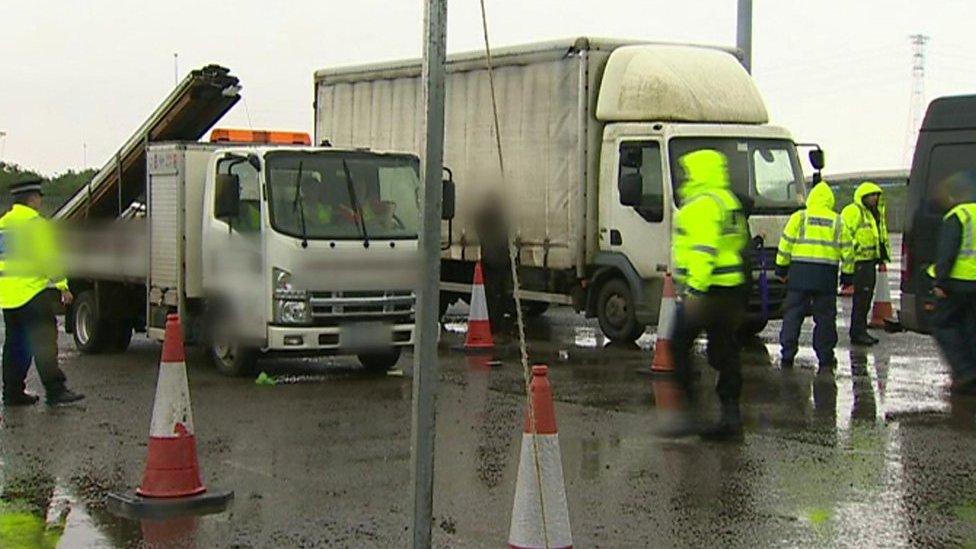Undercover investigation reveals work exploitation
- Published
Roman Feko and Ladislav Fedak were jailed for exploiting victims
An undercover investigation by BBC Wales Investigates has shown the extent and scale of labour exploitation and modern day slavery in the UK.
With a 300% rise in recorded slavery victims since 2012, officials acknowledge there is a growing problem.
We have seen evidence of traffickers forcing vulnerable people to work for little or no money.
As well as examining modern slavery, the programme goes undercover to investigate labour exploitation.
Secretly filmed on busy streets we uncover several examples of exploitation "in plain sight" - with car wash and construction workers being offered well below the legal minimum wage.
Police forces across the UK are being urged to take tougher action against criminals who exploit workers.
In the programme entitled People for Sale - broadcast Monday at 20:30 BST on BBC One Wales - we filmed inside a Czech court for the conviction of two men, Roman Feko and Ladislav Fedak.
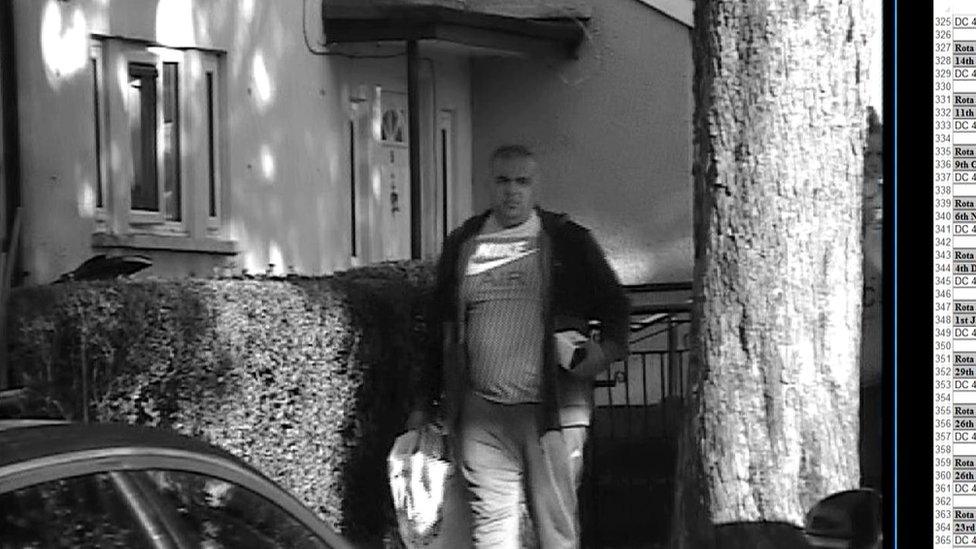
Ladislav Fedak leaving a property in south Wales
The brothers in law ran cleaning companies in Cardiff and were recently jailed for exploiting four victims who had come to Wales in search of a better life but ended up being treated like slaves.
It was a rare victory for international police co-operation in the fight against modern slavery.
Feko and Fedak deliberately targeted homeless and vulnerable men, sleeping rough or at railway stations, trafficked them to south Wales and put them to work in cleaning jobs for little or no money.
One victim, a father in his 40s who asked not to be identified, told me he had been bought by the traffickers and was essentially now their property.
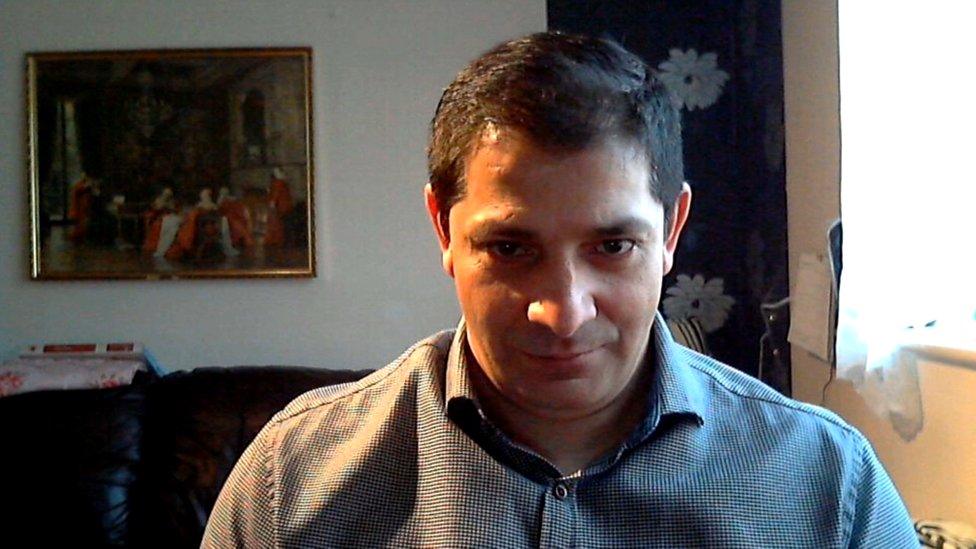
Feko moved to Cardiff after serving 16 years for ordering the murder of two men he had been exploiting
"I learned that Feko had actually bought me," he says. "I realised he'd bought me like a piece of furniture.
"When Feko himself told me he had bought me for 700 Euros so I should behave in accordance with that, what I did is that I got drunk and I tried to commit suicide.
"I jumped off a bridge and I woke up in hospital where I talked to the police."
Astonishingly, South Wales Police on the trail of the traffickers discovered Feko had twice been convicted of ordering murders.
But he had been able to come to the UK and run businesses in the Welsh capital.
One of their cleaning contracts was within a stone's throw of the Welsh Assembly building in Cardiff Bay.
Former South Wales Police Det Ch Insp Tudor Thomas led the investigation.
He said: "This is an organised crime group, part of that group were based here in Cardiff, the other part in the Czech Republic.
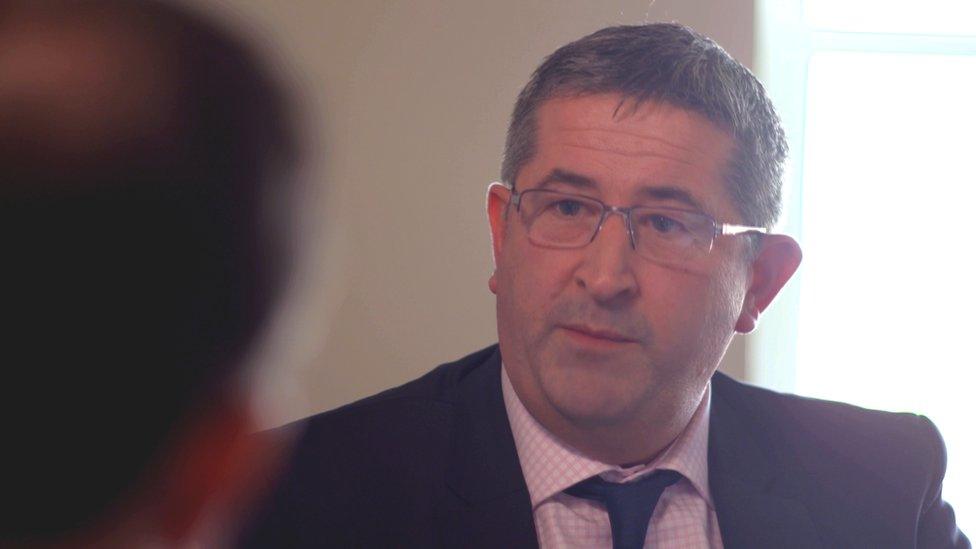
Tudor Thomas, a former South Wales Police detective, led the joint operation with officers in the Czech Republic
"The recruiters in the Czech Republic were looking for men who were down on their luck.
"They were running a slavery operation to make money off the backs of others. They were bullies, they were calculating and callous."
Next to drugs trafficking, modern day slavery is thought to be the world's most lucrative crime.
Last year more than 5,000 men, women and children were identified as potential victims in the UK - a 35% increase on the previous year and a 300% rise since records began six years ago.
In Wales in the past year, almost 200 potential victims were identified.
Woman's story: 'He asked me to work as his slave'
But police and campaigners say there could be thousands more victims out there across the UK.
Modern slavery and labour exploitation take many forms.
We sent an undercover reporter to several roadside car washes in south Wales.
At one business, working alongside a team of Romanians and Kurds, he was offered £30 for a 10-hour day - well below the legal minimum wage - and was charged £130 a month for a mattress in a shared, unfurnished attic.
The manager later told him the business could make up to £4,000 a week.
Secretly filmed on busy streets we uncover examples of labour exploitation "in plain sight"
When later challenged, managers denied the allegations raised in our investigation and said the business had now changed hands.
Chief Constable of Gwent Police Julian Williams, the All Wales Lead on Modern Slavery, said that the public has got a massive responsibility in helping to combat exploitation.
"I'd ask people to ask themselves if it takes six or seven individuals a quarter of an hour to clean your car, for five pounds - are they getting the minimum wage?" he added.
"We all know and use certain services if they're very, very cheap, so let's question ourselves where these individuals come from."
There are now laws to protect victims but campaigners say labour exploitation and slavery happen every day, in virtually every community - often in plain sight and under our very noses.
BBC Wales Investigates' People for Sale - broadcast Monday at 20:30 BST on BBC One Wales
- Published25 February 2018
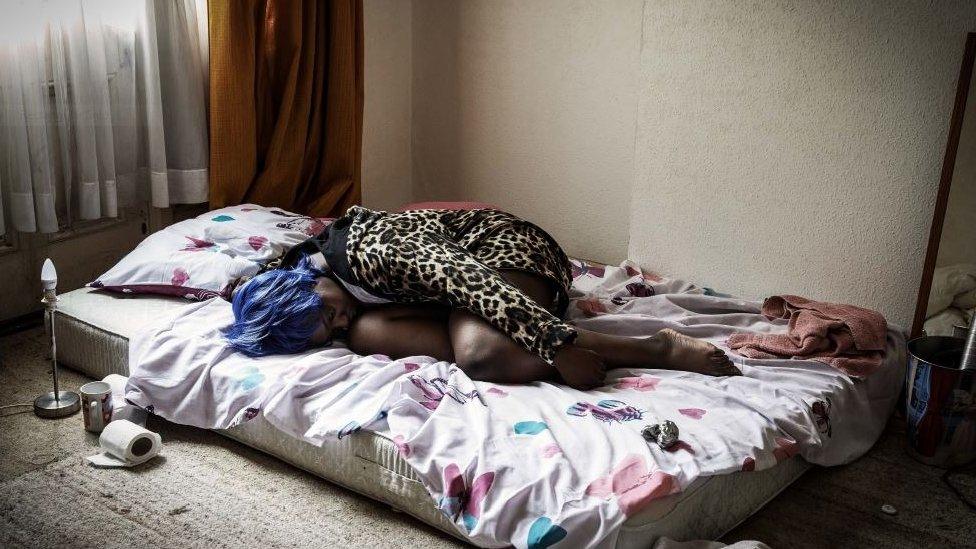
- Published3 October 2017
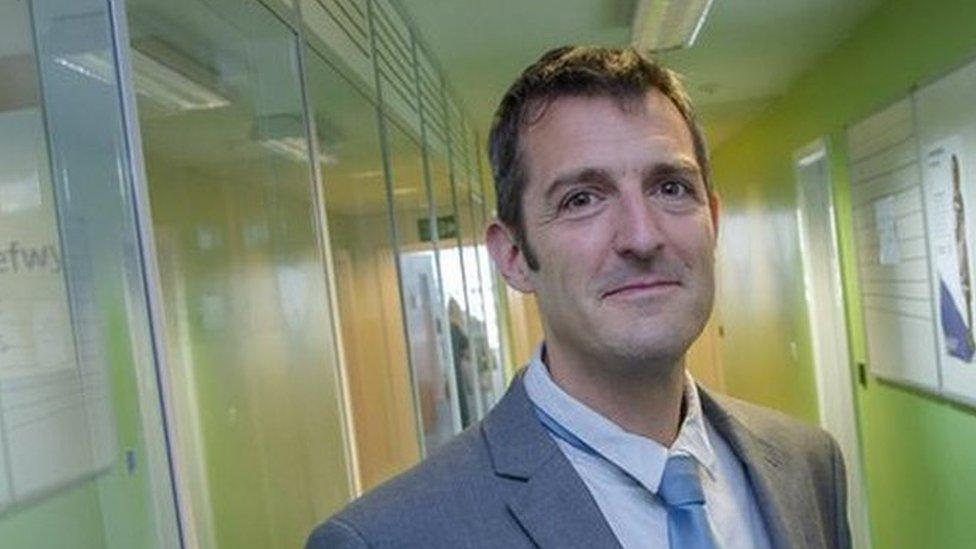
- Published16 May 2017
